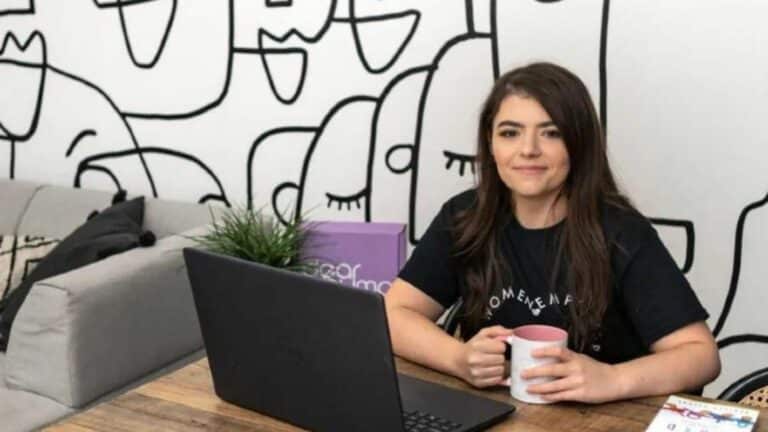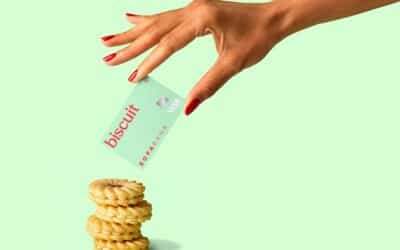Following backlash over Innovate UK awarding just half the number of grants it had promised to female founders in a recent funding competition, the innovation agency was forced to u-turn on its decision and apologised.
At the time, LinkedIn was abuzz with criticism as female founders discovered only 25 out of a potential 50 grants, of up to £75,000 each, were originally awarded for Innovate UK’s Women in Innovation scheme despite it receiving 1,452 applications and having “up to £4m” available to grant.
As a vocal advocate for women’s health and founder of Liverpool-based pregnancy support platform Dearbump, a determined Emma Jarvis voiced her concerns over the grant cuts on social media and rallied other female founders to do the same.
On what really happened, she gives us an inside peek of how the situation unravelled, before sharing more on her solution to tackle stark gaps in maternal healthcare in the UK.
“It was crazy,” she tells Prolific North. “I applied for the grant to improve the functionality of our app, add in more personalised support, some gamification and better education for women postpartum.
“I received an email which said only 25 grants were going to be given out. It was the first thing I commented on.”
Digging deeper into the email, she discovered the scores she received didn’t add up with with her application: “I emailed and messaged a few people via female founder WhatsApp groups, which we use to help and support each other, and I said ‘we need to get everyone to post about this.’ We needed 1,000 female founders to post on LinkedIn and get Innovate UK to give out the other 25 grants.
“A lot of people didn’t want to post initially because they didn’t want to draw attention to the fact that they had been rejected. I said it’s not about being rejected, it’s about the lack of funding. There’s just not enough.
“It’s not because you’re not good enough, it’s because there’s not enough money. So I posted on the Friday and it went a bit crazy. Everyone said: ‘Okay, I’m going to post too. If you’re going to be brave, I’m going to be brave.'”
And it only snowballed from there. Her post went viral as more and more female founders shared their own stories and dismay.
“Important people were tagged and Emmie Faust, founder of Female Founders Rise, emailed the CEO of Innovate UK. He was on holiday and returned early to sort it out.”
The posts from female founders hit the headlines and the issue was raised in UK parliament just four days later. With pressure mounting on Innovate UK, the agency apologised and said it would award all 50 grants and commit the remaining £1.87m of the full £4m initially allocated.
The work doesn’t stop there though. It has since sparked a movement within the female founder community, now with on-going conversations with Innovate UK to ensure its processes are “more inclusive” for future competitions and there is a petition calling on the government to do more to support female founders too.
“Enough is enough. People are taking action now, which is amazing.”
With Dearbump currently on the Baltic Ventures accelerator in Liverpool, she also highlights some of her own frustrations with the investment world as a female founder.
“You have to contact 75 investors to get one, so if I’m applying to the funds that actually invest in female founders, there are only around 10-15 of them in the UK. Where are those 75 funds I’m applying to? If it’s a numbers game, there are not enough funds for me to apply to?
“Part of the problem is only 2% of funding goes to women. I’m about to open my seed round, so I will have more insights soon, but at the moment I don’t feel like there are enough funds that focus specifically on female founders.”
Even with those funds that do exist, she explains there is still a lack of female investors who would be “twice as likely” to invest in women. Although she stresses the majority of her investors are male, who are very supportive, she recalls one experience of being told her pregnancy support app Dearbump was “niche”.
“If we want to solve problems for women, we need to invest in women, which means we need more female investors.”
It’s not just the issue of funding for female founders that Jarvis is tackling though, she’s on a mission to address maternal health inequalities too.
The Dearbump app
According to the APPG group on Birth Trauma, up to 79% of women experience some form of birth trauma. And it’s an experience shared by Jarvis, who has faced her own traumatic births as a mum of two.
“I have two young boys, aged nine and five, and I had two completely different but equally traumatic births and not great experiences. It’s not just me, every single woman I had spoken with had the same story.
“Information is not consistent across the UK. At 38 weeks pregnant, my midwife said: ‘Ok, I’ll see you when you give birth.’ That’s when I realised, I don’t know how to give birth… they didn’t tell me how to do that! I just went into a mad panic trying to find out how to give birth. It should never have got to that point. I felt unprepared.”
It sparked the ‘lightbulb moment’ behind Dearbump, with a vision to address the gaps in maternal healthcare in the UK and provide other women with the information and support she didn’t have at the time.
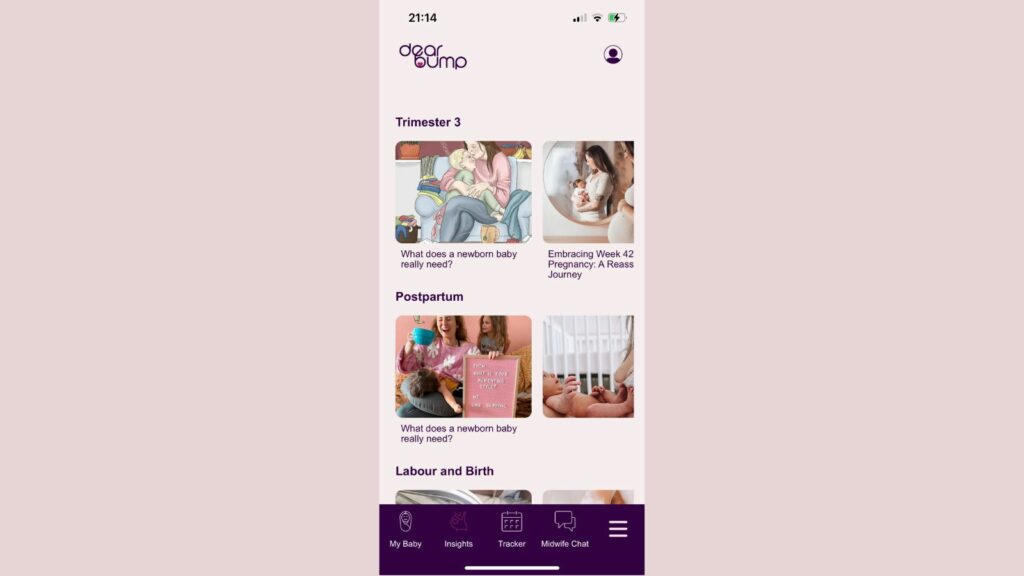
“There was a lack of education and awareness around something that’s supposed to be a natural thing. We should have the information and support that we need.”
Initially launching Dearbump in 2017 as a pregnancy subscription box business, she recently launched a new pregnancy app that combines real-time health tracking and provides users with immediate access to support from a midwife.
The business has expanded into a tech platform after Jarvis secured a Women in Tech scholarship at Northcoders and learnt how to code, later raising £150,000 on Seedrs followed by investment from Liverpool City Region Angels.
Over the years, she discovered there was a “huge research gap within maternal health” with the questions women were asking on the platform.
According to a series published in the Lancet Global Health and eClinicalMedicine, one in three women are suffering long-term health conditions after childbirth.
“There is no research on any of those conditions. Why are we not prioritising this, when this is literally the origin of life, it should be the most important thing that we focus on? That’s why I launched the app, so that we can start to collect that data and work with researchers to close the gap.”
“Women are coming to us because they don’t have that support, knowledge or education”
As one of the unique features on the platform, the midwife live chat function is designed to tackle the concerning disparity of information available to expectant mums before giving birth and offer support even after childbirth.
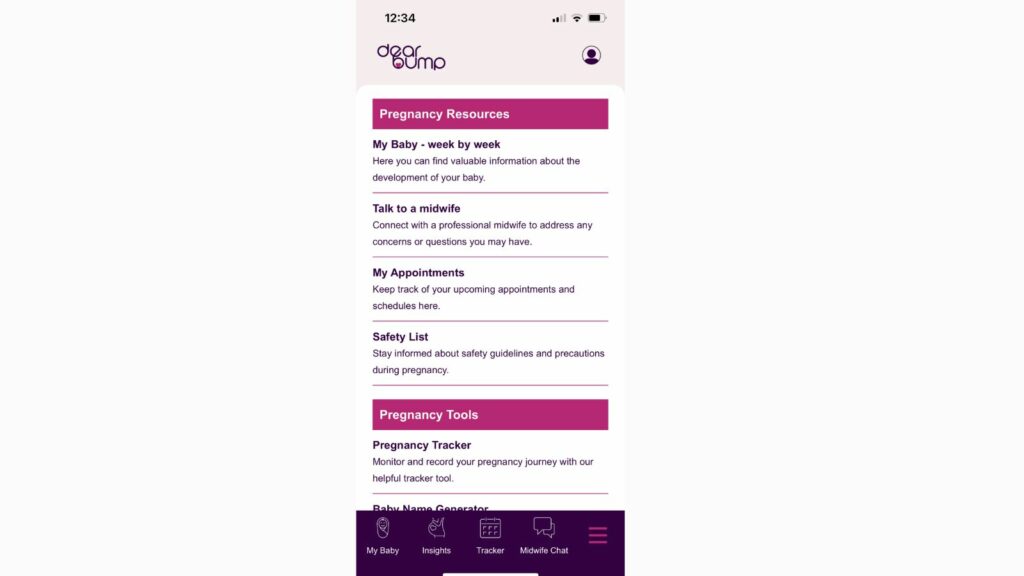
“We have people who are 38 weeks pregnant and they don’t know what’s going to happen. They’re not prepared. Women are coming to us because they don’t have that support, knowledge or education.”
With the launch of the new app, she hopes it will help Dearbump “scale globally and reach women across the world”.
Women using the app can now receive tailored support to track their pregnancy, log any symptoms, and access live chats with trained midwives to help them stay informed both throughout their pregnancy and up to two years after childbirth.
“The midwife chat is where they can get that reassurance,” she explains. “It’s a supplementary midwife because what we find is that women don’t feel like they have enough time with their midwife or they have long appointment time waits in between appointments.”
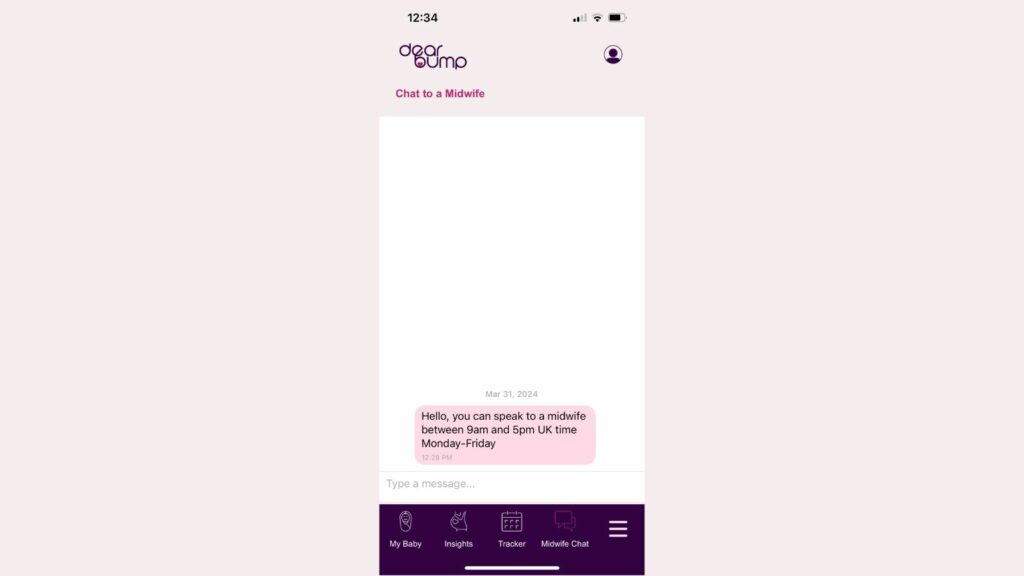
This is particularly pertinent in the first trimester, where expectant mums are not able to see a midwife until 12 weeks into their pregnancy.
“There’s that really long time where they have all of these questions and anxieties. They don’t know what to do or what not to do and they just want someone to talk to.”
The app also offers sensitive and relevant content for those navigating the complexities of pregnancy loss, to tailored support on what a newborn needs.
“Right after you’ve given birth, you have a six-week check in and that’s it. On how to look after a baby, it may seem like a really basic thing but we don’t actually get taught any of it.”
To take Dearbump to the next level, she’s gearing up to open a seed round of £600,000.
“My goal is to improve maternal health outcomes. I want to raise my seed round, grow the team and scale across the world.”



